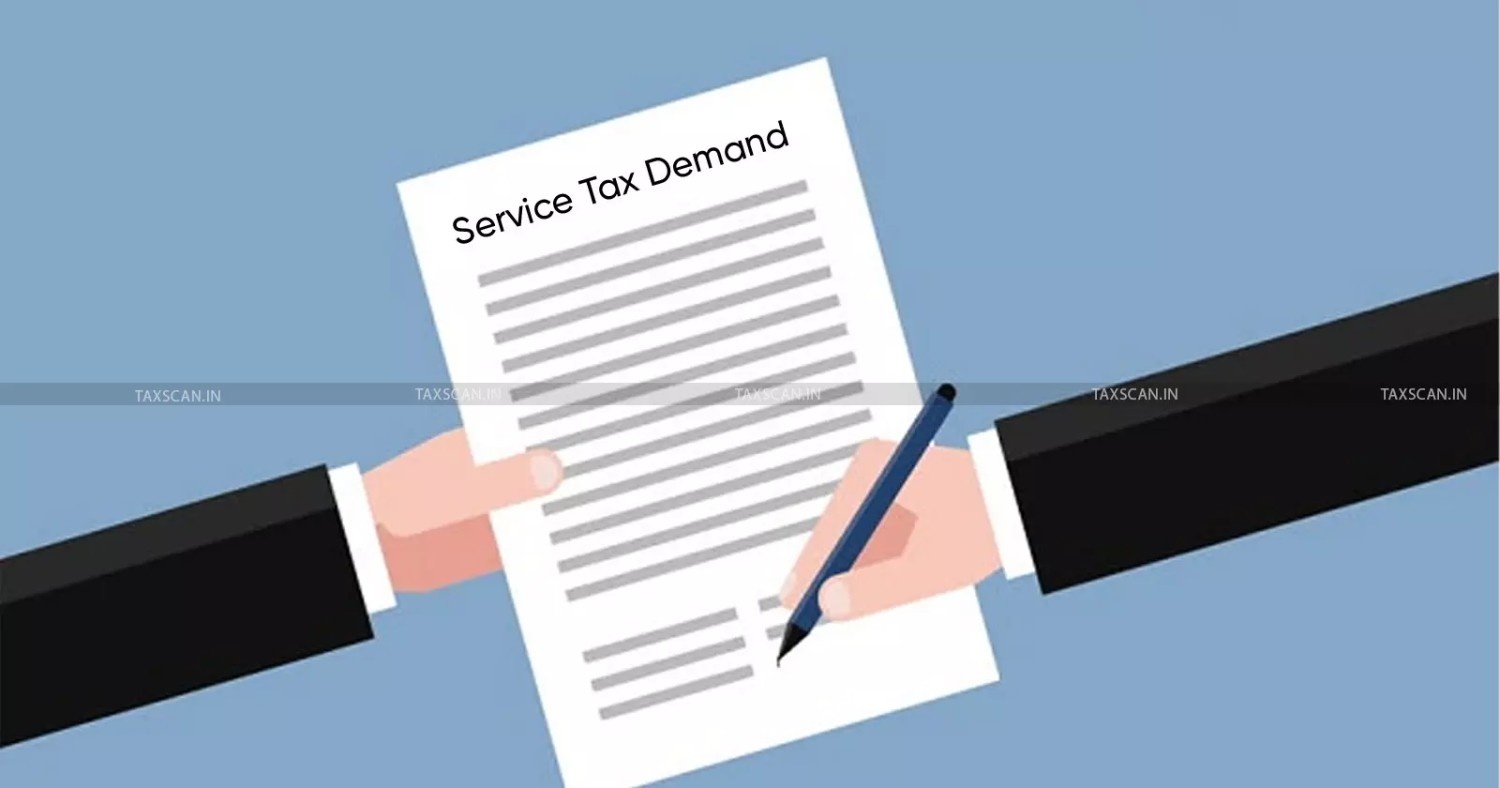Service Tax Demand Based Solely on Income Tax Data Set Aside by CESTAT [Read Order]
The Tribunal affirmed that a service tax demand cannot be sustained merely on the basis of a comparison of Income Tax and Service Tax data without independent verification or evidence of suppression.
![Service Tax Demand Based Solely on Income Tax Data Set Aside by CESTAT [Read Order] Service Tax Demand Based Solely on Income Tax Data Set Aside by CESTAT [Read Order]](https://images.taxscan.in/h-upload/2025/11/14/2105064-service-tax-taxscan.webp)
The Bench of the Customs, Excise & Service Tax Appellate Tribunal (CESTAT), New Delhi, has held that a service tax demand raised merely on the basis of data derived from Income Tax returns and Form 26AS, without any independent verification or evidence of suppression, is unsustainable in law.
The appeal was filed by M/s Kirodiwal Associates, an Indore based service provider engaged in construction-related taxable services. During a departmental verification exercise based on third-party data received from the Income TaxDepartment for the Financial Year 2015-16, it was observed that the gross receipts declared in the appellant’s Income Tax return were ₹1,24,91,872, whereas the value of taxable services shown in the Service Tax returns was ₹1,08,11,345.
Alleging a short payment of service tax on the differential value of ₹16,80,527, the Department issued a show cause notice proposing recovery of ₹2,43,637 along with interest and penalties. The Adjudicating Authority, confirmed the demand and imposed equivalent penalties under Section 78 and an additional penalty under Section 77(1)(c) of the Finance Act, 1994. The Commissioner (Appeals) upheld the order, leading the appellant to approach the Tribunal.
Appearing for the appellant, Advocate Priyanka Goel argued that the demand was unsustainable since it was based solely on third-party information from the Income Tax Department and Form 26AS, which are not statutory documents for determining service tax liability. Relaying on CBIC Circular No. 137/47/2020-ST dated 23 April 2021, which clarifies that reconciliation based on Income Tax data alone cannot be a valid basis for service tax demand.
 Also Read:Service Tax Demand Based on Photocopy of Bill Unsustainable when Marriage Palace’s Receipts Below Exemption Limit: CESTAT [Read Order]
Also Read:Service Tax Demand Based on Photocopy of Bill Unsustainable when Marriage Palace’s Receipts Below Exemption Limit: CESTAT [Read Order]
Master the Latest Amendments in Income Tax Act Click here
It was further submitted that the difference between the figures was due to accounting treatment and classification of receipts, as certain services rendered by the appellant were exempt under Entry No. 14(b) of Notification No. 25/2012-ST dated 20 June 2012, relating to construction of single residential units.
The counsel urged that the show cause notice was time-barred, as it was issued beyond the normal period of limitation without any valid justification to invoke the extended period under Section 73(1).
On behalf of the Department, Rohit Issar submitted that despite repeated opportunities, the appellant failed to produce contracts, invoices, or any relevant documentation to substantiate the claim of exemption.
The Department argued that the difference between the figures reflected in the Service Tax and Income Tax returns indicated suppression of facts and that invocation of the extended period under Section 73(1) was justified.
The bench of Dr. Rachna Gupta, Judicial Member observed that the demand was raised solely by comparing figures declared in the Income Tax return with those in the ST-3 return, without any independent verification.
The Tribunal observed that the Service Tax returns were duly filed, and the nature of services as “construction of residential complex service” was clearly disclosed, along with a specific claim for exemption under Notification No. 25/2012-ST.
It was held that once returns are filed, the responsibility lies with the departmental officer to scrutinize them within the normal period and to raise objections, if any. Failure on the part of the officer to do so cannot justify the invocation of the extended period of limitation.
 Also Read:Once ITAT Order Attains Finality and Tax Paid, No Further Recovery Permissible: Madras HC Rules Authority Bound to Lift Attachment [Read Order]
Also Read:Once ITAT Order Attains Finality and Tax Paid, No Further Recovery Permissible: Madras HC Rules Authority Bound to Lift Attachment [Read Order]
Further the bench beheld the settled legal position that unless the ingredients of fraud, wilful misstatement, or suppression of facts with intent to evade are specifically established, the extended period under Section 73(1) cannot be invoked.
In the light of Indian Railway Catering and Tourism Corporation Ltd. v. CST-Delhi-I (2025) judgment, the tribunal held that the failure of departmental scrutiny within the normal period does not amount to suppression by the assessee.
Subsequently, the Department had not produced any evidence to show that the appellant was not entitled to the exemption claimed under Notification No. 25/2012-ST and the entire demand was based on a mere difference in the figures. The tribunal held that such demands based solely on Income Tax data or Form 26AS are not sustainable without corroborative evidence or proper enquiry.
Therefore, CESTAT set aside the impugned order and allowed the appeal.
Support our journalism by subscribing to Taxscan premium. Follow us on Telegram for quick updates


